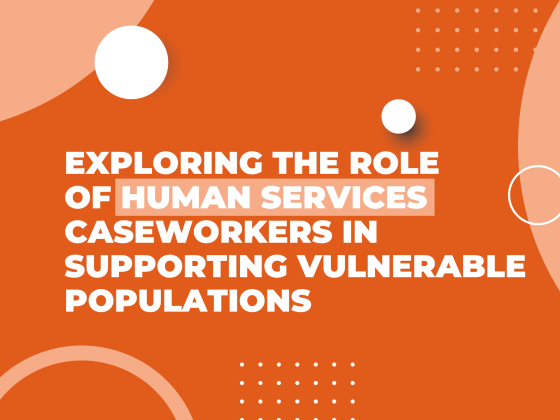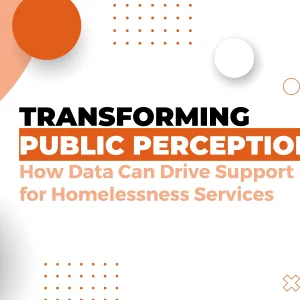Exploring the Role of Human Services Caseworkers in Supporting Vulnerable Populations
Human services caseworkers are the unsung heroes of our society. They work tirelessly behind the scenes to support vulnerable populations and provide them with the resources they need to overcome challenges and improve their lives.
But which vulnerable populations do they work with? And what exactly do they do to drive positive change in the lives of others?
In this article, we will explore the role of human services caseworkers and their intervention strategies. We’ll also show you how you can assist caseworkers with their important work.
What Is A Human Services Caseworker?
A human services caseworker is a professional who works directly with individuals and families in need of support services. They act as advocates, assessors, and coordinators, helping clients access essential resources and navigate complex systems. Caseworkers often work for government agencies, nonprofit organizations, or social service departments.
Responsibilities and Duties Of Human Services Caseworkers
As the backbone of human services, caseworkers bear the responsibility of providing a wide range of services to individuals and families in need. Here are some of them:
Assessment
Caseworkers conduct comprehensive assessments to determine the needs and challenges of their clients. They gather information about the individual’s situation, family dynamics, and any potential risk factors.
Service Planning
Based on their assessments, caseworkers develop personalized service plans that outline goals, objectives, and action steps to address the client’s needs. These plans are created in collaboration with the client and may involve other professionals or service providers.
Resource Coordination
Caseworkers connect clients with appropriate resources, such as healthcare services, housing assistance, employment support, mental health counseling, and educational programs. They navigate the often complex network of services and make referrals to ensure clients receive the necessary support.
Advocacy
Caseworkers act as advocates for their clients, representing their interests and ensuring they receive fair treatment and access to needed services. They may accompany clients to meetings, hearings, or court proceedings to provide support and advocate for their rights.
Monitoring and Evaluation
Caseworkers regularly monitor the progress of clients and evaluate the effectiveness of the services provided. They make adjustments to service plans as needed and ensure clients’ ongoing needs are met.
Vulnerable Populations That Human Services Caseworkers Work With
Human services caseworkers are dedicated to providing compassionate and effective support to those who need it most, including the following:
Homeless Individuals
Caseworkers assist homeless individuals by connecting them with emergency shelters, transitional housing programs, and supportive services. They help address underlying issues to facilitate their transition into stable housing.
Children and Families at Risk
In cases of child abuse or neglect, caseworkers intervene to ensure the safety and well-being of children. They provide support services to families in crisis, including parenting education, counseling, and referrals to community resources.
Older Adults and Persons with Disabilities
Up to 1 in 4 adults in the United States have some type of disability, making up a significant part of the population. Caseworkers assist individuals with disabilities as well as older adults in accessing appropriate healthcare services, housing options, and long-term care. They also provide assistance with financial benefits, legal matters, and support for independent living.
Individuals with Mental Health or Substance Abuse Issues
Human services caseworkers help individuals with mental health or substance abuse challenges access treatment programs, counseling services, and support groups. They work closely with healthcare providers and community organizations to ensure a holistic approach to recovery and well-being.
Best Practices And Intervention Strategies For Human Services Caseworkers
Let’s look at some successful methodologies and intervention models that help caseworkers provide quality care and support to those in need.
Person-Centered Approach
Caseworkers should engage clients in a collaborative and respectful manner, recognizing their strengths and involving them in decision-making processes.
Cultural Competence
Understanding and respecting cultural diversity is crucial for caseworkers to effectively serve clients from diverse backgrounds. Cultural competence promotes better communication and builds trust.
Collaboration and Networking
Caseworkers should collaborate with other service providers, community organizations, and government agencies to create a network of support for their clients. By working together, they can leverage resources, share information, and ensure a coordinated approach to meeting clients’ needs.
Trauma-Informed Care
Many vulnerable populations have experienced trauma, and caseworkers should approach their work with sensitivity and understanding. Trauma-informed care involves creating a safe and supportive environment, recognizing the impact of trauma, and tailoring interventions accordingly.
Empowerment and Skill-Building
Caseworkers can empower clients by helping them develop necessary skills, such as problem-solving, decision-making, and communication. Building clients’ capacity promotes independence and self-sufficiency.
Continuous Professional Development
Caseworkers should engage in ongoing training and professional development to enhance their knowledge and skills. This ensures they stay informed about best practices, emerging trends, and changes in policies and regulations.
Evaluating The Effectiveness Of Human Services Caseworker Programs
Caseworker programs can be a game-changer for people who need extra support in their lives. But how can you know if these programs are working? That’s where evaluating their effectiveness comes in. Here are some key indicators of success for caseworker programs.
Client Outcomes
- Tracking improvements in clients’ quality of life, such as better relationships, increased self-esteem, and improved physical health.
- Evaluating the impact of caseworker programs on clients’ ability to achieve their goals and overcome challenges.
- Measuring the effectiveness of interventions and support provided to clients to improve their overall well-being.
Service Utilization
- Analyzing data on the number of clients served, types of services provided, and frequency of service use.
- Assessing the efficiency of service delivery, such as wait times, appointment scheduling, and overall accessibility.
- Identifying gaps in service provision and developing strategies to address them.
Client Satisfaction
- Soliciting feedback from clients on their experience with caseworker programs, including their level of engagement, communication, and support received.
- Evaluating the impact of caseworker programs on clients’ satisfaction with their lives and their ability to achieve their goals.
- Using client feedback to inform program improvement and enhance service provision.
Collaborative Partnerships
- Assessing the effectiveness of partnerships with other agencies and organizations in achieving program goals.
- Identifying opportunities for collaboration and developing strategies to enhance partnerships.
- Evaluating the impact of collaborative efforts on service provision and client outcomes.
Exponent Case Management Helps Human Services Caseworkers Drive Better Outcomes
Human services caseworkers play a vital role in our communities by providing support and assistance to a range of vulnerable populations. Their dedication and compassion make a significant difference in the lives of individuals and families facing various challenges.
Because of the powerful change they can create, it’s crucial to have reliable, data-backed information on the efficacy of their work. We know this is easier said than done, which is why we’re so passionate about our all-in-one platform designed specifically for changemakers like you.
At Exponent Case Management, we are committed to equipping your agency with the most advanced human services technology that is currently available in the market. Our goal is to assist human services agencies in optimizing their data management, achieving measurable outcomes, and gaining a deep understanding of their impact both in the present and the future.
With a solid understanding of the impact of your human services programs, your organization can identify areas for improvement and make data-driven decisions. And that means more effective and impactful services to vulnerable populations to build stronger, healthier communities.
Ready to hear more about what our platform can do? Sign up for our live monthly demo and let’s talk.



